Thursday, 8th—We left Washington City at 1 a. m. and arrived at the junction of the Baltimore & Ohio railroad about 8 o’clock, where we changed to the line running through Harper’s Ferry, which place we passed through. Our brigade is in the rear, the Eleventh Iowa being on the rear train, as we were the last regiment to leave Washington, D. C. The day was very hot and many of us being crowded on the open cars suffered terribly under the hot sun. We arrived at Cumberland about midnight, where we were served with hot coffee by the Sanitary Commission Society.
American Civil War Chronicles
Downing’s Civil War Diary.—Alexander G. Downing.
June 7, 2025
Wednesday, 7th—The First Brigade of our division left at 5 o’clock this morning for Louisville. Our brigade left camp at 3 o’clock this afternoon and marched to the Baltimore & Ohio station, where we boarded the cars. We were put on open coal cars, and there were so many to the car that we could not lie down and straighten out.[1]
[1] It was nothing short of disgraceful for the Government to treat the soldiers that way after the war. The War Department should have taken more time to move the soldiers from the city.—A. G. D.
Downing’s Civil War Diary.—Alexander G. Downing.
June 6, 2025
Tuesday, 6th—We received orders to leave for Louisville, and drawing four days’ rations turned over to the general quartermaster our regimental teams and wagons. We expect to start in the morning. The Third Division of our corps started this morning, while the First Division left yesterday morning. The troops are leaving Washington as fast as the railroads can furnish cars; they even bring in all the open cars not in use and crowd the soldiers onto them until there is no standing room. Large numbers of soldiers have already left for their homes, while others are going to different cities to remain in camp for a while.
0
June 5, 2025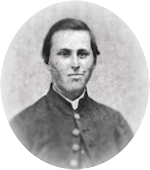
June 5th. The anniversary of the battle of Piedmont. Thank God the cruel war is over. Playing ball, pitching quoits, helping the farmers, is the way we pass the time while waiting for orders to be mustered out. We have many friends in this town and vicinity. Helping in various kinds of work and also in the churches.
Downing’s Civil War Diary.—Alexander G. Downing.
June 5, 2025
Monday, 5th—This forenoon we had a temperance speech by Wm. Roach of Iowa at the headquarters bivouac of the Eleventh Iowa. Blank pledges of the Washington Temperance Society were distributed and a good many of the boys signed the blanks after they were filled out.[1] The men mustered out from our division, the Fourth, started for their homes this afternoon. The Government furnishes them transportation to their home states.
[1] Mr. Downing was among the number.—Ed.
Downing’s Civil War Diary.—Alexander G. Downing.
June 4, 2025
Sunday, 4th—We had company inspection this morning. The weather is very hot and we all remained close to our “ranches” today. We could not go to the city anyway, for without a pass it is difficult to get by the provost guard.
0
June 3, 2025
June 3d. Still having a pleasant time at this town, and continue our walks through the country. – Berries and cherries are beginning to ripen. Allowed to help our- selves with all we can eat, as we do much work for the farmers, helping at various kinds of work. Stores are opening up in town, as are also all the churches. Buildings are in bad condition, the result of the four years of the war.
Village Life in America
June 3, 2025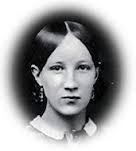
June 3.—I was invited up to Sonnenberg yesterday and Lottie and Abbie Clark called for me at 5:30 P.M., with their pony and democrat wagon. Jennie Rankine was the only other lady present and, for a wonder, the party consisted of six gentlemen and ?ve ladies, which has not often been the case during the war. After supper we adjourned to the lawn and played croquet, a new game which Mr. Thompson just brought from New York. It is something like billiards, only a mallet is used instead of a cue to hit the balls. I did not like it very well, because I couldn’t hit the balls through the wickets as I wanted to. “We” sang all the songs, patriotic and sentimental, that we could think of.
Mr. Lyon came to call upon me to-day, before he returned to New York. He is a very pleasant young man. I told him that I regretted that I could not sing yesterday, when all the others did, and that the reason that I made no attempts in that line was due to the fact that one day in church, when I thought I was singing a very good alto, my grandfather whispered to me, and said: “Daughter, you are off the key,” and ever since then, I had sung with the spirit and with the understanding, but not with my voice. He said perhaps I could get some one to do my singing for me, some day. I told him he was very kind to give me so much encouragement. Anna went to a Y.M.C.A. meeting last evening at our chapel and said, when the hymn “Rescue the perishing,” was given out, she just “raised her Ebenezer” and sang every verse as hard as she could. The meeting was called in behalf of a young man who has been around town for the past few days, with only one arm, who wants to be a minister and sells sewing silk and needles and writes poetry during vacation to help himself along. I have had a cough lately and Grandmother decided yesterday to send for the doctor. He placed me in a chair and thumped my lungs and back and listened to my breathing while Grandmother sat near and watched him in silence, but ?nally she said, “Caroline isn’t used to being pounded!” The doctor smiled and said he would be very careful, but the treatment was not so severe as it seemed. After he was gone, we asked Grandmother if she liked him and she said yes, but if she had known of his “new-fangled” notions and that he wore a full beard she might not have sent for him! Because Dr. Carr was clean-shaven and also Grandfather and Dr. Daggett, and all of the Grangers, she thinks that is the only proper way. What a funny little lady she is!
Downing’s Civil War Diary.—Alexander G. Downing.
June 3, 2025
Saturday, 3d—The weather continues quite hot. All men in our brigade whose time is out by the 1st of October were mustered out today and they turned over their guns and accouterments. Twelve boys from our company received their discharge and will be sent home.
0
June 2, 2025
June 2d. Our regiment is the only one left at this post. Details continue to hunt and collect government property. Some western regiments pass through this town on the B. & O. R. R. bound for home, singing and cheering, happy.
Downing’s Civil War Diary.—Alexander G. Downing.
June 2, 2025
Friday, 2d—For the first time we saw mustered-out soldiers leaving for their homes today.
0
June 1, 2025
June 1st. Fine weather. All is very quiet. The country has on its summer dress. Looks ?ne. The most important question with us is, home, sweet home, when do we go. Soldier’s life at this time is a dull one. Our only interest is our dress parades. We have many visitors from town.
Downing’s Civil War Diary.—Alexander G. Downing.
June 1, 2025
Thursday, 1st—The weather is quite sultry. There is nothing of importance. Our camp duty is very light here. The ground is rough, and it would be impossible to find a place for a drill ground or even a parade ground.
A Diary From Dixie.
June 1, 2025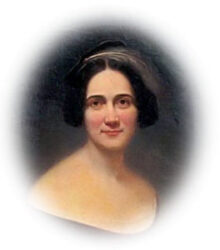
June 1st.—The New York Herald quotes General Sherman as saying, “Columbia was burned by Hampton’s sheer stupidity.” But then who burned everything on the way in Sherman’s march to Columbia, and in the line of march Sherman took after leaving Columbia? We came, for three days of travel, over a road that had been laid bare by Sherman’s torches. Nothing but smoking ruins was left in Sherman’s track. That I saw with my own eyes. No living thing was left, no house for man or beast. They who burned the countryside for a belt of forty miles, did they not also burn the town? To charge that to “Hampton’s stupidity” is merely an afterthought. This Herald announces that Jeff Davis will be hanged at once, not so much for treason as for his assassination of Lincoln. “Stanton,” the Herald says, “has all the papers in his hands to convict him.”
The Yankees here say, “The black man must go as the red man has gone; this is a white man’s country.” The negroes want to run with the hare, but hunt with the hounds. They are charming in their professions to us, but declare that they are to be paid by these blessed Yankees in lands and mules for having been slaves. They were so faithful to us during the war, why should the Yankees reward them, to which the only reply is that it would be by way of punishing rebels.
Mrs. Adger[1] saw a Yankee soldier strike a woman, and she prayed God to take him in hand according to his deed. The soldier laughed in her face, swaggered off, stumbled down the steps, and then his revolver went off by the concussion and shot him dead.
The black ball is in motion. Mrs. de Saussure’s cook shook the dust off her feet and departed from her kitchen to-day—free, she said. The washerwoman is packing to go.
Scipio Africanus, the Colonel’s body-servant, is a soldierly looking black creature, fit to have delighted the eyes of old Frederick William of Prussia, who liked giants. We asked him how the Yankees came to leave him. “Oh, I told them marster couldn’t do without me nohow; and then I carried them some nice hams that they never could have found, they were hid so good.”
Eben dressed himself in his best and went at a run to meet his Yankee deliverers—so he said. At the gate he met a squad coming in. He had adorned himself with his watch and chain, like the cordage of a ship, with a handful of gaudy seals. He knew the Yankees came to rob white people, but he thought they came to save niggers. “Hand over that watch!” they said. Minus his fine watch and chain, Eben returned a sadder and a wiser man. He was soon in his shirt-sleeves, whistling at his knife-board. “Why? You here? Why did you come back so soon?” he was asked. “Well, I thought may be I better stay with ole marster that give me the watch, and not go with them that stole it.” The watch was the pride of his life. The iron had entered his soul.
Went up to my old house, “Kamschatka.” The Trapiers live there now. In those drawing-rooms where the children played Puss in Boots, where we have so often danced and sung, but never prayed before, Mr. Trapier held his prayer-meeting. I do not think I ever did as much weeping or as bitter in the same space of time. I let myself go; it did me good. I cried with a will. He prayed that we might have strength to stand up and bear our bitter disappointment, to look on our ruined homes and our desolated country and be strong. And he prayed for the man “we elected to be our ruler and guide.” We knew that they had put him in a dungeon and in chains.[2] Men watch him day and night. By orders of Andy, the bloody-minded tailor, nobody above the rank of colonel can take the benefit of the amnesty oath, nobody who owns over twenty thousand dollars, or who has assisted the Confederates. And now, ye rich men, howl, for your misery has come upon you. You are beyond the outlaw, camping outside. Howell Cobb and R. M. T. Hunter have been arrested. Our turn will come next, maybe. A Damocles sword hanging over a house does not conduce to a pleasant life.
[1] Elizabeth K. Adger, wife of the Rev. John B. Adger, D.D., of Charleston, a distinguished Presbyterian divine, at one time a missionary to Smyrna where he translated the Bible into the Armenian tongue. He was afterward and before the war a professor in the Theological Seminary at Columbia. His wife was a woman of unusual judgment and intelligence, sharing her husband’s many hardships and notable experiences in the East.
[2] Mr. Davis, while encamped near Irwinsville, Ga., had been captured on May 10th by a body of Federal cavalry under Lieutenant-Colonel Pritchard. He was taken to Fortress Monroe and confined there for two years, his release being effected on May 13, 1867, when he was admitted to bail in the sum of $100,000, the first name on his bail-bond being that of Horace Greeley.
Downing’s Civil War Diary.—Alexander G. Downing.
May 31, 2025
Wednesday, 31st—I got a pass and went to the city again. I spent most of the day in the patent office and in the Smithsonian Institution. I also got my watch repaired, which cost me $3.00. The city seems to be astir; new buildings are growing up all over and some of the Government buildings are being improved. Except for the presence of so many soldiers in the city, no one would think that a four years’ war had just ended. The city needs most of all paved streets, for in wet weather they get very muddy and the city looks no better than a country town. The Washington monument is not yet finished and from a distance it looks like a large smokestack with the top lacking. A part of the Fifteenth Corps left for Louisville today, but all men whose time is out by October 1st were left here to be mustered out at once. All of the eastern men in Sherman’s four corps are to remain in Washington for the present. We had a temperance talk here this evening by William White Williams. I bought a medal of honor from him. Everything is going along fine.
Diary of Horatio Nelson Taft.
May 30, 2025
Washington May 30th 1865
The achievements of the Country during the past six or seven months, if we take a rapid glance at them, are truly astonishing. A catalogue merely of the striking Military events during that period would almost fill a volume. Beginning with the time that Thomas almost annihilated the army of the Rebel Genl Hood at Franklin and Nashville. Then following Genl Sherman in his daring plunge into the heart of Georgia. The Storming of Fort McAllister, and the Capture of Savannah, almost without a Siege, with all its Wealth and vast Armaments. Then sweeping through South Carolina like a desolating Tornado. Compelling the Surrender of Charleston tho not within a hundred miles of it. Capturing the Capital of the State without a Battle (Columbia). Entering North Carolina, defeating the Rebels under Johnston at Bentonville and Averysboro and capturing the Capital of the State Raleigh and to close this successful march receives the surrender of Johnston and his Army. During this time, the month of March, Genl Terry captures Fort Fisher at the mouth of the Cap[e] Fear River (one of the most desperate and heroic acts of the War). Thus compelling the surrender of Willmington a few days afterwards. During this time also Schofield was fighting betwen Wilmington and Raleigh around Kinston and penetrating to Goldsboro. It is now the latter part of March and Genl Grants Movements begin to absorb the attention of the Country. The rebels surprise and capture Fort Steadman (one of Grants line of Forts) but dearly did it cost them for they were easily driven away. And then began those decisive movements and series of splendid victories which compelled the surrender of Petersburgh and Richmond and finaly the Capture of Genl Lee and his whole army, and the Great Rebellion was virtualy ended. But during this time again, Genl Canby was forcing his way into Mobile. Genl Wilson is “riding free” with a Cloud of horsemen over Alabama and Georgia scattering all opposition, capturing Selma, Montgomery, and Macon. Stoneman is dashing through Eastern Tennessee and N Carolina, riding at will and driving all before him. Then Taylor and Kirby Smith Surrender which embrace about the last of the rebel forces. But during this period of Six or Seven months, the realy most important events have not been yet mentioned. In the midst of a desolating War, in the smoke and heat of Battle as it were, There has been a quiet Presidential Election and Inauguration, with all its usual attendant excitements. A Draft of three hundred thousand men has been ordered, and the men raised. The Government Credit has been increased at home and abroad a hundred fold and Gold has fallen a hundred percent. Our great and Good President has been assassinated. The assassin Killed. Jefferson Davis has been captured and impeached for Treason. The grand Review & the Trial of the conspirators. Tearfully – and Joyfully have we witnessed these Events.
Downing’s Civil War Diary.—Alexander G. Downing.
May 30, 2025
Tuesday, 30th—The weather is pleasant and seems to be settled. There is nothing new.
Downing’s Civil War Diary.—Alexander G. Downing.
May 29, 2025
Monday, 29th—It is reported in camp that the western men in General Sherman’s army will be transferred to Louisville, Kentucky, by rail and by transports on the Ohio, there to be mustered out of the service. The veterans are anxious to get their discharge, for since the war is over we have no desire to remain in the army.
On freeing servants
May 29, 2025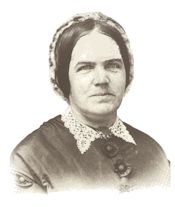
May 29, 1865.
Dr. Williams, from Social Circle, came this morning to trade me a horse. He tells me the people below are freeing their servants and allowing those to stay with them that will go on with their work and obey as usual. What I shall do with mine is a question that troubles me day and night. It is my last thought at night and the first in the morning. I told them several days ago they were free to do as they liked. But it is my duty to make some provisions for them. I thank God that they are freed, and yet what can I do with them? They are old and young, not profitable to hire. What provision can I make?
Downing’s Civil War Diary.—Alexander G. Downing.
May 28, 2025
Sunday, 28th—It is clear and pleasant today. We cleaned up our camping ground and put up our “ranches” in regular order. News came that the rebel general, Kirby Smith. commanding south and west of the Mississippi, had surrendered his army and the navy.
Through Some Eventful Years
May 27, 2025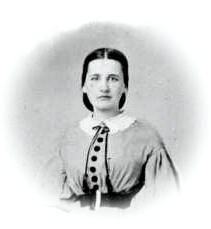
May __, 1865.—Mother has been sick with fever for three days past and I have paid no attention to my diary. Last night such a mysterious stranger came to us. I, who have the reputation of having no curiosity, am fairly eaten up with it. Father knows but does not tell. He says I must not write down what happened as it might endanger our visitor. He says I must not even put a date.
Mother’s illness was severe, she does not often have fever and we felt alarmed but she is much better this morning, even to the extent of eating a nice little squab, Adeline had broiled for her breakfast.
Something dreadful has happened dear Diary, I hardly know how to tell it, my dear black mammy has left us. I did not expect her to be the ?rst to leave but it was not exactly her fault. Mother did not want Hannah to go out to Centreville where all those soldiers are encamped and when she found Lulu was dressing her in her prettiest clothes to take her there to spend the day, Mother told her Hannah must not go.
Lulu reminded her that they were now free and if she saw fit to take her daughter into that crowd it was nobody’s business.
Of course that angered Mother so she said, “If you disobey me in this matter you and your family must leave the place.”
Lulu did not believe she was in earnest and came in as usual to attend to her duties but Mother was firm and Lulu had to go and I am inconsolable, though I would not have Mother to know it for the world.
I feel lost, I feel as if someone is dead in the house. Whatever will. I do without my Mammy? When she was going she stopped on the doorstep and, shaking her ?st at Mother, she said:
“I’ll miss you—the Lord knows I’ll miss you—but you’ll miss me, too—you see if you don’t.”
Well, she is gone—I will try to wait on Mother so she will not miss her too much. I do not think Mother realizes they are free.
Downing’s Civil War Diary.—Alexander G. Downing.
May 27, 2025
Saturday, 27th—It is cloudy and still raining some. I received a pass and with six other boys of our company went to the city to spend the day. We went through some of the public buildings, the capital, patent office and the treasury building; they are fine buildings, all being built of marble. We viewed the White House from the street, and went through the Smithsonian Park, which is very beautiful indeed.
The city is full of soldiers viewing the sights. But there is one thing which seems to cast a gloom over the city, and that is, that our beloved President Lincoln is not in the White House, that he was not here to greet us when we passed down Pennsylvania avenue, and that he had to be taken off by the hand of an assassin just when the war was over.
0
May 26, 2025
May 26th. At one o’clock this morning the guard was called out to stop a negro dance, some trouble having broken out, caused by outsiders. The guard must act as police, keep things quiet. At 9 A. M. relieved and returned to camp.
Downing’s Civil War Diary.—Alexander G. Downing.
May 26, 2025
Friday, 26th—It is raining again today, and the roads between our camp and the city are almost impassable. We are poorly fixed here for washing and cleaning our clothing. The long march from Goldsboro, North Carolina, has been pretty hard on our clothes. We have not received any pay since November, 1864, and some of the boys are getting pretty short of change.
Village Life in America
May 25, 2025
May 25.—I wish that I could have been in Washington this week, to have witnessed the grand review of Meade’s and Sherman’s armies. The newspaper accounts are most thrilling. The review commenced on Tuesday morning and lasted two days. It took over six hours for Meade’s army to pass the grand stand, which was erected in front of the President’s house. It was witnessed by the President, Generals Grant, Meade, and Sherman, Secretary Stanton, and many others in high authority. At ten o’clock, Wednesday morning, Sherman’s army commenced to pass in review. His men did not show the signs of hardship and suffering which marked the appearance of the Army of the Potomac. The scenes enacted were historic and wonderful. Flags were flying everywhere and windows, doorsteps and sidewalks were crowded with people, eager to get a view of the grand armies. The city was as full of strangers, who had come to see the sight, as on Inauguration Day. Very soon, all that are left of the companies, who went from here, will be marching home, “with glad and gallant tread.”